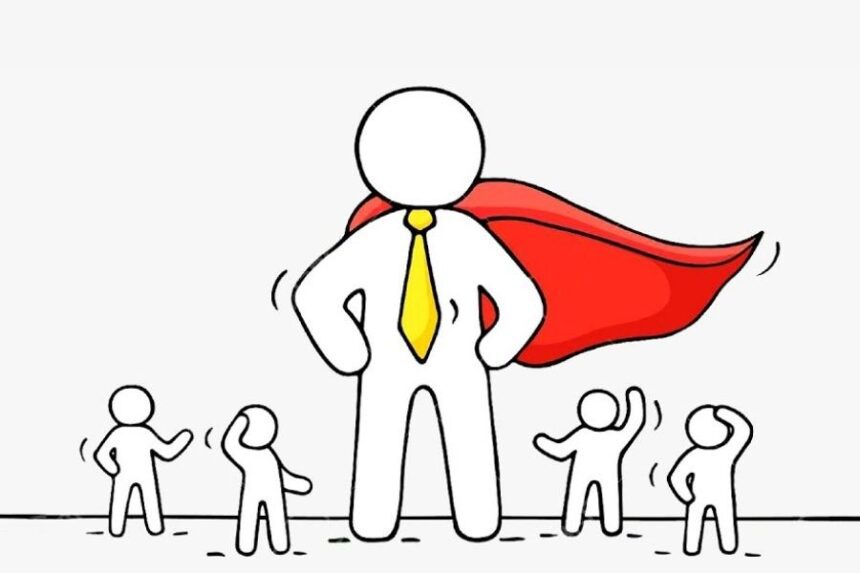Today we’re going to learn about the pygmalion effect and the psychology of success.
Now let’s begin how do our expectations affect our achievements? what happens when you expect yourself to fail?
Your expectations influence and empower your goals they motivate you they inspire you, they challenge you but above all your expectations contribute to your success
If you expect yourself to fail then you will, if you expect yourself to succeed you may just do it.
This correlation was discovered in 1968 by robert rosenthal and lenoir jacobson in their famous book they explored how expectations affected success

just imagine this researcher hands you a box of puzzle pieces he gives you 30 seconds to solve the puzzle but before you get started he says don’t worry this puzzle will be easy for you, you’ll solve it in no time, in other words, he has high expectations of you, he anticipates that you’re going to do well by encouraging you, he shows that he has faith in you and you respond positively, you solve the puzzle in less than 30 seconds just like he expected.
Now let’s run this scenario again this time we’re going to change the researcher’s expectations like before he hands you a box of puzzle pieces and you have 30 seconds to put it together but before you get started he says this puzzle is way too difficult for you, i don’t think you can solve it, this time the researcher has low expectations of you, he does not have faith in your ability and so you fail.
It’s the same puzzle with the same time limit but expectations can make or break your performance rosenthal and jacobsen call this the Pygmalion effect
High expectations create positive results, low expectations on the other hand decrease performance and motivation.
This psychological phenomenon can affect you in any setting and its impact can last a lifetime.
All right, let’s say one of your co-workers makes a lot of careless mistakes they make so many mistakes that everyone expects them to mess up.
Other employees make fun of them, your boss gives them trivial meaningless responsibilities, they’re consistently ignored for raises and promotions.
No one expects them to succeed, so they don’t instead they make more mistakes, they hold themselves back they become the failure that everyone expects them to be.

The pygmalion effect is like a self-fulfilling prophecy, the expectations of others can change who you become for better or for worse, but there’s something we’ve missed, we’ve yet to uncover the real power behind the Pygmalion effect.
Yes, the expectations of others are important, you may perform better when your bosses clients and mentors expect great things from you
However, your greatest source of strength is you no one’s expectations affect you more than your own your expectations can lift you up as easily as they can tear you down
So, how can you take advantage of this psychological phenomenon? how can the pygmalion effect motivate your success? and where does self-confidence come from?
To answer these questions, let’s explore three different pieces of this mysterious self-confidence, these pieces influence your expectations and change your perspective on yourself thanks to the pygmalion effect they may even lead you towards success.
The four experiences

experience may be your greatest asset it can motivate a lifetime of confidence and passion it expands your mind and sharpens your identity but how does it work?
All right, let’s say you’re terrified of jumping off a high dive but you muster up all your courage and you leap from the diving board
Despite all your worries and fears, you land safely in the water below, suddenly your opinion of the high dive changes
you know what it’s like to jump from the top, you’ve conquered that challenge, you’ve overcome that fear, you’ve done it once so you can do it again and again, In other words, your expectations of yourself have changed.
The first time around, you expected to get hurt, you expected yourself to fail so you ran away now that you have experience you expect yourself to succeed, and that’s exactly what you do every experience in life works the same way.
Take a new job for example it seems overwhelming or intimidating at first but experience will help you overcome your fears you’ll learn to have higher expectations of yourself, you’ll learn to believe in your ability and that self-belief will give you the confidence to succeed.
If you want to find success, you need to gain meaningful experiences and plenty of them these experiences fall into four different categories each category influences you in a different way but they all play an important role in your self-confidence and success.

The first category mastery experiences teach you resilience and courage to have a mastery experience, you have to overcome an obstacle usually something that scares you the high dive.
For example, by jumping from the high dive you faced a significant challenge and you came out on top that courage will stick with you for years to come.

Next, we have vicarious experiences, these experiences supply you with motivation and inspiration.
Yo have a vicarious experience you need to perceive something through someone else.
Go to the olympics and watch someone take home a gold medal.
Sit in the audience while trained actors sing their hearts out.
When you witness another person’s success, you grow inspired to chase your own.

Our third category is modeling experiences, a modeling experience gives you a path to follow because you’re learning from a role model or mentor.
These lessons help you find purpose and direction when you watch the people you admire your own path in life becomes clearer.

Finally, we have emotional and physical experiences, these experiences come in all shapes and sizes from breakups to broken bones, they teach us about ourselves
They mature us as individuals and they force us to confront uncomfortable and sometimes painful situations.
In life, you’ll encounter experiences from each and every category some more than others, but that’s okay, it’s not important that you chase each category individually.
Everyone has different experiences at different times, some are empowered by lifelong mentors, others face physical and emotional hurdles on a daily basis.
You never know what kinds of experiences you’ll have, but you never stop searching for them, so make yourself vulnerable step out of your comfort zone.
Take risks, say yes to things you never thought, you’d say yes to each experience will push you in a new direction.
Each experience will reinvent and dispel your fears in its own unique way, each experience will prepare you for success.
Basic autonomy

Experience cannot create self-belief on its own, it’s a powerful foundation it stimulates trust vulnerability and ultimately growth, but your confidence cannot flourish without a sense of control, this concept comes from self-determination theory.
Self-determination theory explores the roots of human motivation.
People have three basic needs relatedness, competence and autonomy, each need is important for your dedication passion and happiness, but the last one autonomy plays a crucial role in your self-confidence
Autonomy is your ability to make independent decisions
You need to feel control over your own life if you don’t feel control, you stand no chance of being successful because autonomy gives you agency and agency lets you grab hold of your future but how do you nurture this sense of control in your life?
You start by taking responsibility for yourself, you practice for example making your own decisions, look in your closet, yeah take a hard look at the clothes you wear, do you wear these things because you like them? did you choose to dress like this or did someone make that decision for you?
Now ask the same questions of your habits your lifestyle and your career, did you decide these things for yourself?
If you had it your way, would you make changes, if the answer is yes then make those changes gain control of your life decisions for yourself and then actually follow through, not only will you satisfy a basic human need, you’ll learn to believe in yourself, you’ll raise your expectations of yourself and you’ll push yourself toward personal success
Bandura’s theory

The final piece is called self-efficacy this concept comes from a psychologist named Albert bandura
Self-efficacy, he says, is your personal judgment of your capability
if you have high self-efficacy, you believe in your ability to face challenges and overcome them on the surface
Self-efficacy is very similar to autonomy but the two concepts differ in one very important way
autonomy is a human desire for control self-efficacy, on the other hand, is your perception of your autonomy, you may have plenty of control over your life but what if you don’t believe you have control?
Now if that happens, your self-confidence will plummet and your success will follow.
Low self-efficacy increases the likelihood of failure just like low expectations.
All right, let’s say your boss gives you an important project for the week, he gives you some loose instructions and you follow his instructions to the letter in the end the project turns out terribly you have the knowledge to fix it you have the ability to fix it but you don’t feel like you have the control to fix it so the project fails.
Low self-efficacy has the same effect on your life if you perceive yourself as passive and helpless, if you don’t think you’re in the driver’s seat then you’ll never find success.
Together these three pieces transform your internal narrative experiences give you confidence autonomy gives you control and self-efficacy gives you faith in yourself because of the pygmalion effect.
We know just how powerful this narrative, can be so expect yourself to achieve and there’s a good chance you will hey.











